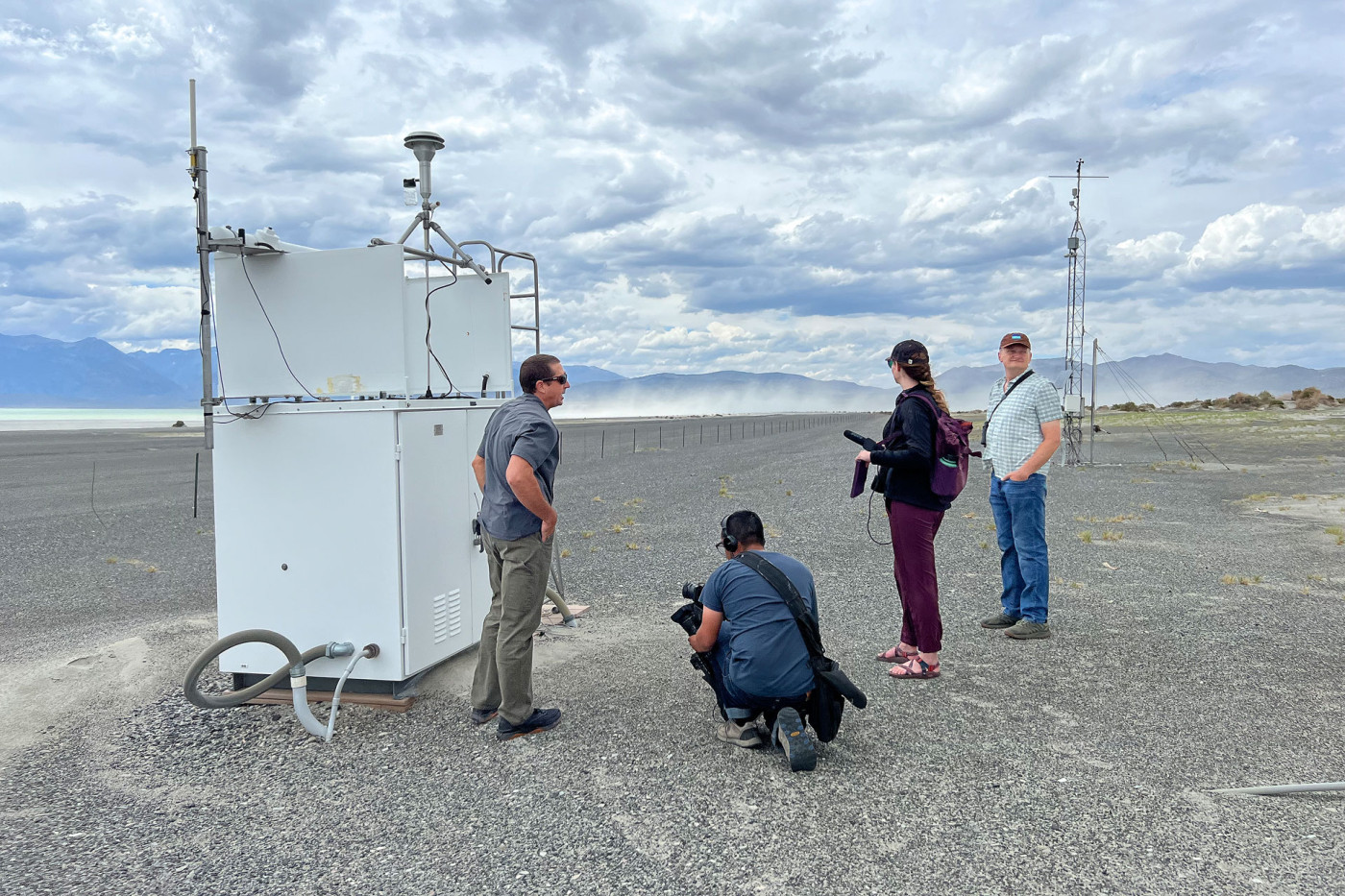On Aug. 17, at the Online Journalism Awards, the Great Salt Lake Collaborative (GSL) took home the first place prize in the category of Excellence in Collaboration and Partnership. Story Killers, H2A Visa Worker Exploitation, and Railroaded stood as accompanying finalists.
Consisting of 21 news, education and media partners from across the state, the GSL was established in January 2022 with the purpose of tackling the crisis at the Great Salt Lake through the lens of solutions journalism. The collaborative brings together a network of public and nonprofit media partners such as Salt Lake Community College, Amplify Utah, The Salt Lake Tribune, Utah Public Radio, KCPW, KRCL, KUER and more.
Heather May, project manager at the GSL, said the award demonstrates the positive outcomes that arise when communities and journalists join forces.
“It shows we are a model for how other communities can come together to tackle environmental issues,” she said. “I hope it shows our community why they should support local journalism.”
FOX 13 reporter Ben Winslow, a regular contributor to the collaborative, pointed out that the shrinking Great Salt Lake presents a number of existential problems for the entire state. The work of the GSL is thus important in helping inform the average person, he said.
“I hope the collaborative’s work has made Utahns more aware of the lake and its role in our daily lives and what we can all do, no matter how small, to help,” he added.
This spring, Winslow took part in a project called “Solutions from Israel,” in which Utah leaders traveled to Tel Aviv to learn about how the Middle Eastern country manages its water in one of the driest climates in the world. Winslow said there’s a lot Utah can learn from Israel, but he noted that some things don’t translate exactly.
“The average Israeli household uses less water than the average Utah household,” Winslow explained. “Israel has a nationalized water system (as opposed to Utah’s use of water rights and districts), and desalination is a big part of their success.”
“The Great Salt Lake has the opposite problem [as we need water in the lake],” Winslow continued, “but water conservation is very much a part of Israeli culture.”
Since the collaborative’s inception, May said Utah lawmakers have done more than ever before when it comes to taking steps to help preserve the lake.
“Based on the feedback we’ve heard from lake advocates and state officials, the collaborative has ensured that saving the Great Salt Lake is a priority for the public and policymakers,” she said. “Because we are relentless on one topic, we’ve been invaluable in educating the public [and some policymakers] about what is at stake and what can be done.”
To keep up with the Great Salt Lake Collaborative, visit greatsaltlakenews.org.







